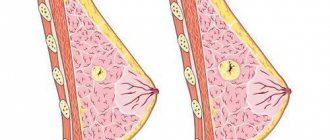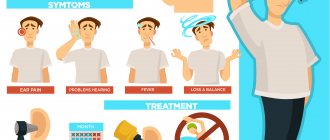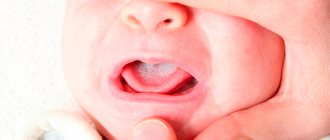When the condition cannot be stabilized in a short time, and the body cannot recover from the disaster for two weeks, help is needed. Such diarrhea is already called long-term, and its treatment requires a more thorough approach. As a rule, it indicates the need to pay attention to other internal organs that are currently in an inflamed state.
If diarrhea drags on for so long, it can cause great harm to the body. Each new day in which quality treatment for the body was not provided means additional complications that will soon also have to be dealt with.
Causes of prolonged diarrhea
As a rule, diarrhea is not a separate disease, but a symptomatic reaction to some disturbance in the functioning of the body. Most often, these are diseases that affect the gastrointestinal tract, but sometimes water diarrhea is also provoked by other body systems. The causes of prolonged diarrhea in adults may include the following problems:
- A chronic disease of different parts of the intestine, which has an inflammatory nature of a polyetiological type, called enteritis.
- Disruption of the balance of microorganisms that create the overall flora of beneficial bacteria in the digestive system. The problem is called dysbiosis.
- The process of formation of an inflammatory focus in the large intestine and small intestine during the same period of time. Doctors call this disease enterocolitis.
- Diseases affecting the pancreas, which are called in one word - pancreatitis.
- When foci of inflammation affect the surface of the mucous membrane located in the area of the large intestine, colitis is formed. It also often causes bouts of diarrhea.
- If the patient has lactose intolerance, but by coincidence the patient has consumed a product that is dangerous to him.
- In case of disruption of the development of connective tissues in the pancreas. Fibrosis develops, which results in not only diarrhea, but also inflamed scars on the gland. The disease is called fibrosis.
- When the intestines are damaged by unfixed irritants that cause a number of sensations that cause discomfort and pain. This disease is called irritable bowel syndrome.
- The formation of tumors on internal organs involved in food digestion. Most often, these tumors are malignant oncological formations.
- Insufficient production of enzymes needed by the body by the organs, which leads to failure.
- When the gastrointestinal tract is affected by ulcerative lesions or simply when the intestines lose integrity, which leads to the release of blood into the intestinal cavity and causes diarrhea.
- When parasites (helminths) appear in the body, their activity can leave noticeable traces in the form of toxins. The body reacts to them, diarrhea is formed, and the body gradually gets rid of harmful substances. However, it will not be able to get rid of the parasites themselves, so it needs help.
- A viral infection of the intestines also causes diarrhea. There are a lot of pathogens of this kind, but they all irritate the walls of the intestines and stomach in different ways.
- The ingestion of substances that the body identifies as harmful chemical combinations, and in short, poison, makes diarrhea a method of getting rid of unwanted damage from unidentified substances. So, there are drug, chemical or simply household (food) poisonings.
- Severe stress of any nature can negatively affect the gastrointestinal tract and permanently disable the entire system.
- Excessive activity of the thyroid gland also often leads to provocation of diarrhea by water. The disease is called hyperthyroidism.
- Diseases in which the immune system is the main target area.
- Excessive addiction to alcoholic drinks, which also actively affect the condition of the mucous tissue in the digestive system.
- Violation of the integrity of the intestine due to surgical intervention, the purpose of which was the surgical treatment of any disease.
In fact, there are many reasons for the development of diarrhea with long-term effects on the body. It is possible to find out the nature of the intestinal dysfunction that provoked prolonged diarrhea only after a series of special studies, the results of which will help the doctor choose the right treatment method.
Main symptoms
The most obvious symptom of diarrhea is loose stools, but this is only one of many signs of an intestinal or stomach disorder. Depending on the accompanying symptoms, the doctor can more accurately determine the disease and select the appropriate treatment. Symptoms of diarrhea:
- lower abdominal pain;
- frequent urination;
- vomit;
- increased gas formation;
- feeling of heaviness;
- high body temperature.
In case of poisoning, diarrhea is most often accompanied by severe vomiting, but these symptoms disappear relatively quickly after taking appropriate medications. If the cause of diarrhea is an infection, then the symptoms only intensify over time. A sign of infectious diseases is a change in the color of stool to gray, and the consistency becomes clayey rather than liquid.
When you have diarrhea, you should pay attention to the color of the mass and the presence of impurities. If a yellow or whitish tint appears, pancreatitis is most likely the cause of diarrhea. Disturbances in the functioning of the pancreas lead to a deficiency of enzymes that help digest food.
It happens less often that a woman experiences either constipation or diarrhea. This is a sign of the presence of parasites in the intestines. Infection is accompanied by weakness, lethargy, and headaches. In addition to diarrhea, there may be nausea and, less commonly, vomiting. When infected with salmonella, the body temperature rises, mucus appears in the stool, and less often blood. If diarrhea lasts for a long time, dehydration occurs. Its main symptoms:
- weakness;
- dizziness;
- dry mouth;
- low pressure;
- rapid pulse;
- blackness before the eyes;
- thirst.
In the most severe stage of dehydration, cachexia occurs, extreme exhaustion of the body with weight loss and loss of ability to work.
To understand why diarrhea may develop after kefir, it is worth taking a closer look at the composition and properties of this dairy product. Unlike milk, it is rich in bacteria and fungi. It also contains the following components:
- retinol;
- calciferols;
- riboflavin;
- vitamin C;
- mineral salts.
Retinol, or vitamin A, has a positive effect on the visual organs. With its lack, a person begins to see worse. The skin becomes drier and the hair becomes brittle.
Calciferols promote the body's absorption of calcium and phosphorus. These components help strengthen bone tissue. Vitamin D is needed by pregnant women, since the complete formation of the child’s bones depends on its content. Did you know that diarrhea can occur after taking vitamins?
Riboflavin, or vitamin B2, promotes the integrity of the skin and mucous membranes, and vitamin C supports the functioning of the immune system and hematopoietic processes.
As you can see, this product is necessary for every person to function properly. But why do some people get severe diarrhea from kefir? We wrote about the rules for using this product for diarrhea here.
Diarrhea is not a disease, but a symptom that indicates problems in the gastrointestinal tract or in the body as a whole. Therefore, it is impossible to cure diarrhea without knowing what causes it. Diarrhea is defined as the passage of loose stool either once or with an increased frequency of bowel movements. If such a violation goes away within 2-3 weeks, we are talking about acute diarrhea, over 21 days - chronic.
In a normal state, the body of a healthy adult excretes 100–300 g of formed feces daily or at other intervals that are comfortable for a particular gastrointestinal tract. Liquefaction and accelerated evacuation of stool occurs due to a sharp increase in water content: with diarrhea, stool is 90% liquid. The amount of feces suggests the etiology of diarrhea:
- disturbances of intestinal motility usually do not increase the daily volume of feces; it is excreted frequently, but in small portions;
- if the problem is in the absorption of substances by the intestinal wall, there is a significant increase in the volume of feces due to the mass of undigested food.
The main causes of loose stools in adults:
- indigestion after a large meal with “heavy” dishes;
- mild food poisoning;
- intolerance to certain foods (allergic reactions, hypolactasia);
- taking certain medications (laxatives, antacids, antiarrhythmics, anticoagulants, synthetic sweeteners);
- stressful state (excitement, fear, fright, in which diarrhea is the result of the release of hormones);
- traveler's diarrhea (associated with changes in climatic conditions and diet).
Such diarrhea usually goes away within 3-4 days, and the patient will most likely be able to associate the onset of diarrhea with previous events.
However, the causes of diarrhea in an adult can be more serious:
- infection with bacteria, viruses, protozoa (dysentery, salmonellosis, intestinal flu);
- inflammatory diseases of the digestive system (gastritis, hepatitis, UC (ulcerative colitis), ulcers);
- functional organ failure (deficiency of certain enzymes);
- gastrointestinal diseases of unknown etiology (Crohn's disease);
- toxic damage (poisoning with lead, mercury).
In such cases, it is not enough to simply stop the diarrhea: a diagnosis must be made and qualified treatment must be carried out, often in an inpatient setting. As for the clinical manifestations of diarrhea, they may be mild. This applies to ordinary indigestion, when in addition to loose stools, cramping pain in the abdomen and dyspeptic symptoms (boiling, bloating, severe accumulation of gases in the intestines (flatulence)) may be observed.
In case of food poisoning, the pain is accompanied by weakness, fever, nausea and vomiting, refusal to eat, and the temperature may rise. Similar symptoms are accompanied by intestinal infections and viral diseases.
Alarming signs that require immediate attention are symptoms of dehydration. Dry skin and mucous membranes, cracked lips, severe thirst, rare urination, darkening of urine occur with debilitating diarrhea, and this condition poses a great danger: the pulse increases, blood pressure drops, and muscle cramps may begin.
To prevent dehydration, the water and salts lost by the body must be compensated by drinking plenty of fluids: it is best to take rehydrating solutions (Rehydron and analogues); in their absence, you can drink saline solution, salted water, chamomile tea. Prevention of dehydration should begin as soon as it becomes clear that loose stools are not an isolated case.
Especially if the diarrhea is profuse and constant, has been going on for several days, and is accompanied by vomiting. It is also necessary to pay attention to the presence of blood in the stool. It can appear with dysentery, ulcerative colitis, Crohn's disease.
Depending on the diagnosis, the doctor will select a specific treatment, but there are general rules that must be followed in any case of diarrhea. This is dietary nutrition, taking adsorbent drugs, enzymes.
Possible consequences
If you get rid of diarrhea in the very first days after the onset of its impact on the body, then it will not leave any significant consequences. With prolonged diarrhea in an adult, changes in the body are possible, the result of which will lead to weakening of the body and the emergence of new serious diseases. So, diarrhea can cause:
- Excessive loss of body fluids, which leads to dehydration. As a result, the balance of water and salt compounds in the body is disrupted. At the same time, the blood becomes very thick, which negatively affects the condition of all elements of the circulatory system. The heart begins to beat at an uneven rhythm and slows down noticeably as heavy, thick blood passes through the vessels with difficulty. Water removes most useful minerals from the body, and this means the loss of some of the necessary substances that stimulate the functioning of most organs of the body.
- Disruption of the functioning of the central nervous system. This occurs due to loss of water. The blood loses the ability to be sufficiently saturated with oxygen, and this is necessary to transfer the necessary elements to all organs. This is how oxygen starvation of the brain occurs. The first signs of this condition are memory impairment, decreased decision-making speed, and depression.
- Cramps. They are the result of the same dehydration. Muscle tissue loses its plasticity, and nerve endings lose sensitivity. Signals from the brain to the muscles can be misinterpreted, resulting in involuntary muscle contractions. Tight, overdried muscles and ligaments are convulsively compressed, weakly at first, and then more and more strongly. This causes severe pain.
- Most organs affected by dehydration lose the ability to function fully. And it's good if it's temporary. After treatment, it is not always possible to return the body to the ideal state of the entire body, which can become a big problem in the future.
How to treat
To successfully treat diarrhea, several types of medications are combined. Depending on the cause of diarrhea, different groups of drugs are prescribed:
- antibiotics;
- probiotics;
- analgesics;
- sorbents;
- antiviral drugs;
- choleretic agents;
- enzymes.
In severe cases of dehydration, the administration of saline solution will be required. During the treatment of milder forms of diarrhea, you need to drink more water to avoid dehydration.
1 Sorbents. This group of medications allows you to cleanse the body of various pathogenic microorganisms and reduce the manifestations of flatulence. They are recommended for use in case of intoxication of the body with low-quality food products or in case of an intestinal infection. However, they should be taken according to all the rules, observing a two-hour interval with taking other medications, otherwise their effectiveness will be significantly reduced.
Self-medication with sorbents is not recommended, since there are conditions in which there is severe malabsorption in the intestine, and sorbents can aggravate the general condition of the patient. The modern pharmaceutical industry offers a wide selection of sorbents, including Activated carbon, familiar to everyone since childhood, and preparations developed on the basis of wood (Polifepan, Balignin), and products containing kaolin, calcium salts, bismuth (Smecta, De-nol), and others.
2 Medicines used to reduce the amount of intestinal mucus. This group includes Diclofenac, Indomethacin and other drugs that experts recommend taking from the first day of the disease. When Crohn's disease is diagnosed, therapy is carried out with hormonal drugs, but only after consultation with a doctor.
3 Herbal preparations. They are made from plant materials with astringent properties, for example, oak bark, bird cherry fruits, chamomile and others. You can prepare such decoctions or tinctures at home, but before using them it is advisable to consult a specialist.
4 Enzymes. It is advisable to use these drugs in the presence of diseases of the digestive tract, thus replenishing the lack of digestive juices. In addition, if the absorptive function of the intestine is impaired, it is recommended to take the following medications: Creon, Festal, Mezim and others.
5 Drugs to reduce intestinal motility. These medications are prescribed depending on the underlying cause of the disease. Thus, drugs based on Loperamide are prohibited from being taken in the presence of infectious diseases, since some pathogenic microorganisms will remain in the patient’s body.
Such medications will successfully cope with the symptoms of Crohn's disease or irritable bowel syndrome. Diagnosis of enteropathy involves the use of hormonal treatment with Somatostatin or Octreotide. It is also possible to reduce intestinal motility with the help of drugs from the antispasmodic group, which include No-shpa and Papaverine.
6 Antibacterial drugs. Self-medication with these medications is not carried out due to incorrect interpretation of your disease, so only a specialist can prescribe antibiotics based on the diagnostic studies performed.
7 Intestinal antiseptics. This group includes antibiotics that fight the pathogen directly in the intestinal lumen, without being absorbed into the bloodstream. They effectively cleanse the patient’s body of staphylococci, salmonella, E. coli and other pathogenic microorganisms, but at the same time maintain healthy microflora.
8 Probiotics and prebiotics. These drugs help restore the balance of intestinal microflora. For this, you can also use complex drugs, for example, Enterol, which fights pathogenic microorganisms, cleanses the patient’s body of their waste products, restores the microflora and increases the body’s defenses.
9 Intestinal immunomodulators. These drugs are the most effective in the treatment of inflammatory bowel diseases. A medicine such as Galavit helps eliminate unpleasant symptoms.
It should be understood that stool disorder that lasts more than three days is a reason to contact a medical facility. Chronic diarrhea can be a symptom of dangerous diseases, such as cancer.
1 increase in body temperature to 38 degrees and above;
2 skin rashes;
3 yellow tint to the skin and mucous membranes;
4 insomnia;
5 dark yellow urine;
6 intense spasmodic pain in the abdomen.
If the stool becomes black or green, repeated vomiting with blood is added, and the patient’s general well-being worsens, then in this case you should immediately call an ambulance, since the person’s life is in danger.
Treatment
After a thorough diagnosis, including a number of different types of research, the doctor prescribes individual treatment. Even if the reasons for the formation of long-term diarrhea are identical in several similar cases, getting rid of diarrhea and its consequences may require a different approach, since each person’s body has its own characteristics.
Medicines
Having found out why diarrhea does not go away for a long time, doctors use a number of drugs that, together, can quickly and effectively stop diarrhea and return the body to working condition. Without stopping at one medicine that restores the normal functioning of peristalsis, they select the right set of pharmacological agents, the task of which is to normalize the functioning of the digestive system, restore the balance of microflora in the intestines, normalize the ratio of water and salt compounds in the body, as well as eliminate most problems caused by loss of fluid in the body. In connection with this approach to treatment, doctors may prescribe the following drugs:
- Mezim-forte;
- Bifiform;
- Creon;
- Linux;
- Imodium or Loperamide;
- Smecta;
- Kaopectate;
- Enterosgel;
- Baktisubtil;
- Intetrix;
- Gastrolit;
- Nifuroxazide;
- Polysorb MP;
- Rifaximin;
- Papaverine;
- Eubicor;
- Regidron;
- Hilak-forte;
- No-shpa.
In parallel, it is possible to use related techniques. For example, if it is necessary to rid the body of biological or chemical poison, gastric lavage is performed. To restore the balance of water and salt compounds, drink plenty of it, and lightly salt it.
Diet
The functioning of the gastrointestinal tract directly depends on what we eat. When prolonged diarrhea occurs in an adult without fever, it is felt especially acutely. In this regard, carefully check your menu and remove the following products from it:
- freshly baked wheat bread;
- salo;
- fat meat;
- bakery products;
- soda;
- dark varieties of bread;
- coffee;
- sweets;
- legumes;
- fresh fruits from the garden, rich in fruit acids;
- unprocessed vegetables;
- aromatic herbs that many people use in cooking;
- spices;
- canned vegetables (as well as those made from meat or fish);
- dairy products;
- mushrooms;
- instant products, semi-finished products;
- food that is too hot or cold.
Folk remedies
It is not possible to completely cure long-term diarrhea using traditional medicine. But they are an excellent support for the body, which alleviates the patient’s condition and improves the functioning of traditional medicine. In this regard, the parallel use of remedies from ancient memory chests left by our ancestors will be favorably received by the body. And there are a huge number of such secrets, because different herbs grow in different areas:
- Refreshing mint infusion. People like to drink it just like that, i.e. in the form of tea. But this time you need to pour boiling water over a few leaves of your favorite plant, boil for just a minute and leave to saturate with useful substances for an hour. Drink half a glass of this liquid after your main meals - and intestinal function will normalize.
- Chamomile is already known to most people as a cure for diarrhea. It is especially valued in the treatment of diarrhea caused by infectious infection. A tablespoon of flowers is poured into 250 ml of plain water and boiled for 15 minutes. After letting it brew and collect the maximum of useful substances for half an hour, the resulting decoction is filtered and drunk before meals.
- Blueberry infusion or tea. You can prepare it using the same method as chamomile. This tea is very tasty, so it will be pleasant to simply drink it all day.
- St. John's wort is also useful in relieving diarrhea. You can prepare it using the same recipe as blueberries and chamomile.
- There is starch in every kitchen. However, few people know that this is a reliable remedy for diarrhea. It is enough to dissolve 2 tablespoons of powder in warm water poured into a cup, and then drink several times throughout the day.
How to determine diarrhea in a baby?
Before starting complementary feeding, all babies have loose stools. In the first 2-3 days of life, a baby’s stool has the consistency of liquid sour cream, the color ranges from black to brown with a green tint - this is meconium. From 3-4 days, feces become yellow with different shades (from dark yellow to light green), the consistency depends on the type of feeding.
- A breastfed baby has liquid stool with a sour milk smell, sometimes with particles of undigested milk, and a minimal amount of mucus. Bowel movements occur during feeding, immediately after eating food or after 1.5-2 hours. On average, the number of bowel movements per day in children with breastfeeding up to 6 months is from 3 to 8 times a day. With the introduction of complementary foods (from 6 months) - 1-3 times a day.
- In bottle-fed children , mushy stools with a characteristic odor are always almost the same in color.
Constantly thin, slightly watery stool is more common in newborns who are breastfed. A greenish tint and an increased frequency of bowel movements are also normal, provided that the baby has a good appetite, sleeps, is active and is not bothered by anything.
Parents often confuse normal loose stools with diarrhea. Signs and symptoms of the pathological condition help recognize diarrhea and distinguish it from healthy bowel movements.
There are a number of specific signs by which diarrhea can be identified.
Table “Distinctive features of diarrhea in infants”
| Signs | Symptoms |
| Color, smell and impurities | Green diarrhea, sometimes with red streaks. The smell is putrid or rotten. Diarrhea with mucus and undigested food particles. What diarrhea looks like can be seen in the photo |
| Consistency | Watery, foamy diarrhea |
| Frequency | More than 7-8 times per day |
| Associated discomfort | The baby cries, presses its legs to its tummy, grunts, and is capricious. |
| Increased gas formation | The baby farts often. The smell of gas is unpleasant. Possible bowel movement while passing gas |
| Rash | Red small pimples on the butt, around the anus. Redness and irritation of the skin |
| Temperature | 37,3-38,5 |
Prevention
There are several rules that will help you avoid most types of diarrhea. To prevent the development of this disease, you must strictly adhere to them:
- Personal hygiene rules come first. Wash your hands as often as possible, especially if you have visited the restroom or left home or taken public transport. A huge number of diarrhea pathogens infect people precisely because of non-compliance with this essentially very simple rule.
- Carefully heat treat meat, fish and eggs. Undercooked and undercooked foods may contain live microorganisms and helminth eggs.
- Don't forget to wash your vegetables and fruits. In this case, the treatment must be carried out not only with cool water, but also with boiling water. This will get rid of pathogens located on the surface of the fruit.
- Don't experiment with unfamiliar foods. If it suits someone, it is not a fact that your intestines will digest such food without complaint. This is especially true for dishes with specific spices or rich fatty gravies.
- When cooking, never use food that has expired or is about to expire.
- Store food in the refrigerator.
- Do not forget to undergo an annual medical examination, which will allow you to get rid of emerging pathologies in a timely manner.
Review of remedies to stop diarrhea
A remedy for severe acute diarrhea is an essential component of a home first aid kit. Diarrhea appears suddenly and can be stopped by taking medications. A first aid kit should be a constant companion on long journeys and minor trips. The need to stop particularly severe acute diarrhea on the road often arises. Lack of hygiene, poor quality food, and excessive anxiety can trigger the onset of the disease at any moment.
There are drugs containing the active substance - loperamide. Carrying stops after an hour after taking the pill. These include:
- loperamide;
- imodium;
- suprelol;
- lopedium;
- diara.
The remedies are applicable for diarrhea of non-infectious origin caused by eating poor-quality food, stress, and changes in climatic conditions. If you have an infectious disease, use is contraindicated. The drugs are available in the form of capsules, tablets, drops. The dosage for an adult is initially 2 tablets, and one after each trip to the toilet. You can take up to eight capsules per day. Children's dose: 3 loperamide tablets per day. The drugs are first aid.
When diarrhea is caused by intoxication - bacterial, viral, allergic, enterosorbents come to the rescue, removing toxins and protecting the stomach walls from irritation.
- Adults take Enterosgel 3 times a day, a tablespoon, children from seven to twelve years old - a dessert spoon, from two to seven - a teaspoon, infants - half a teaspoon.
- Smecta is diluted in half a glass of water. Adults take up to six packets per day, four are enough for children, and one packet for children under two years of age.
- Polysorb, Silix, Atoxil act on the body in a similar way; drug intake is calculated depending on the person’s weight.
- Polyphepan is the optimal remedy for babies. Children under one year old are given one teaspoon diluted in 50 grams of water. For adults and children, dilute a tablespoon in the same amount of water.
- Gastrolite helps normalize water and electrolyte balance. Contains: sodium and potassium chloride, sodium bicarbonate, chamomile extract, glucose. The daily dose for an adult is 1 liter, divided into several doses. Children 3-12 years old take 100 ml for the first 4 hours, then 50 ml, from one to three years - 50 ml, then 10 ml; infants are given the drug at the rate of 50 ml per kilogram of weight per day.
- Filtrum-sti is used for viral diarrhea and acute food poisoning. Adults take 2 - 3 tablets 3 times a day, in children from 7 to 12 years old the dose is reduced to 1-2 tablets in three doses, from 4 to 7 years old it is permissible to take 3 tablets per day, 1-3 years old - ½ pills.
- Activated carbon is taken at the rate of one tablet per ten kilograms of weight. Children are recommended to take no more than 3 tablets per dose.
For diarrhea of infectious etiology, the following drugs are considered effective:
- Enterofuril;
- Phthalazol;
- Furazolidone;
- Enterol;
- Sulgin;
- Intetrix;
- Nifuroxoside;
- Stop diar.
If there is any doubt when choosing a medicine, you should consult a doctor for advice.
When should you see a doctor?
Some patients are embarrassed to consult a doctor with such a delicate issue as diarrhea. But don’t be ashamed of it: diarrhea is a disease like the others. But there are times when calling a doctor is absolutely necessary. Seek help as soon as you notice the following signs of illness:
- The occurrence of severe pain in the abdominal cavity, including when accompanied by bloating.
- The presence of additional elements in feces. As a rule, blood and mucous formations appear in it.
- Prolongation of diarrhea for a period exceeding a day.
- Diarrhea is not always limited solely to loose stools. If you notice an increase in temperature, you should contact a specialist immediately.
- If diarrhea affects the general condition of a person, the reaction should be lightning fast. Call a doctor as soon as the patient feels dizzy or faints.
- Weight loss is an important sign of the presence of any disease affecting internal organs. High-quality diagnosis and clarification of the causes of the disease are necessary, and only a doctor can do this.
Remember to be careful. No one can protect the body except you. Even the simplest rules listed here will save you from a lot of trouble. Your health is in your hands!
What to do for chronic diarrhea?
If you notice frequent loose stools lasting more than 2 to 3 weeks, you need to start treatment. The only factor that the patient can independently exclude is food. When consuming foods that are not suitable for consumption even in minimal quantities, they must be completely eliminated. Such cases include allergic reactions to foods and enzyme deficiency (lactase, celiac disease, etc.). They must be avoided. If you eat a large number of foods that in normal quantities do not lead to diarrhea, you need to temporarily exclude them from the diet. After a 2-3 day break and stool normalization, they can be eaten with a gradual increase in quantity. These dishes should not be overused.
To stop diarrhea, you must consult a doctor. He will conduct a diagnosis and find out why changes have occurred in the body. Frequent loose stools can be a sign of serious diseases. Timely initiation of adequate treatment increases the chances of recovery.
Nutrition for long-term diarrhea
Correction of the diet is one of the most important tasks in the complex treatment of prolonged diarrhea. For men with similar symptoms, split meals and reduced portion sizes are recommended. It is necessary to exclude any irritating products and substances from the menu: vinegar, spices, flavorings. It is advisable to prepare food using gentle methods (stewing, baking, boiling). For unspecified frequent diarrhea, it is recommended to limit the consumption of whole milk, spices, fatty sauces, and fresh fruits. Among vegetables, it is necessary to reduce the consumption of cucumbers, zucchini, and radishes to a minimum. Coffee and alcoholic drinks are allowed in small quantities and strictly outside the period of exacerbation.
Principles of diet for diarrhea
To alleviate the condition during the period of acute diarrhea, the diet should consist of sterilized applesauce, boiled rice, bananas, wheat crackers without adding flavorings or dyes. Meat should be consumed in the form of soufflés, meatballs and casseroles. Boiled pieces should be finely chopped using a meat grinder or blender. Learn how to give your child an enema by following the link.











